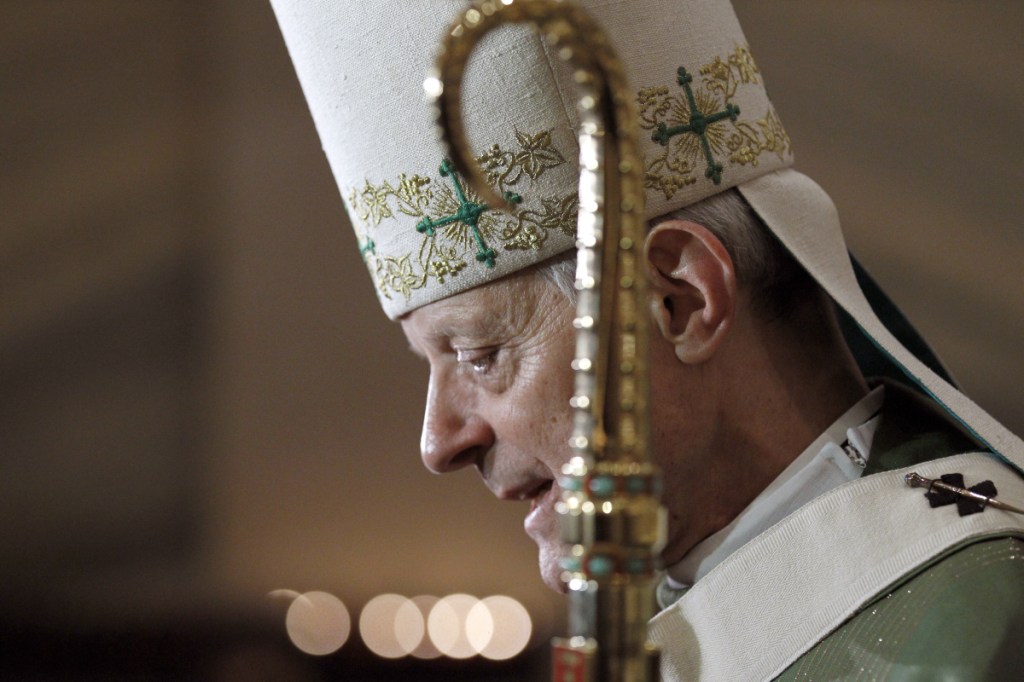In 1989, barely a year after he became the bishop of Pittsburgh, Donald Wuerl (now a cardinal and the archbishop of Washington) wrote what, at the time, was an extraordinary letter to the Vatican. The subject was pedophile priests.
In it, according to a sweeping grand jury report on the church’s complicity in covering up for hundreds of alleged predator priests over decades in Pennsylvania, he told Catholic Church officials he had undertaken a review of abuse cases in his diocese. Parishioners, he wrote, were entitled to know if abusive priests were assigned to their parishes – the usual pattern in many dioceses. Not only did parents have a “moral right to expect chaste conduct” from priests, he wrote, but also bishops and dioceses could be liable if they failed to act on complaints about what he called the “crime” of preying on children.
Wuerl’s advice was enlightened and ahead of its time. He then proceeded to ignore it a number of times over the course of years. He told the grand jury, in a statement, that the Pittsburgh diocese’s policy under his leadership was “to err in defense of the flock, as opposed to the shepherd.” But the facts of several cases tell a different story, and the effect of his actions was to put children in jeopardy.
COVER-UPS, TRANSFERS, DELAYS
One such case involved a priest named Ernest Paone, known as a predator to the Pittsburgh diocese since the 1960s. Wuerl acted to enable him to continue in his position in a variety of roles. (Having been ordained in Pittsburgh, in 1957, Paone remained subject to the Pittsburgh diocese’s jurisdiction.)
As the grand jury report notes, Paone was neither recalled nor suspended following an allegation, in 1994, that he had abused a boy several decades earlier; both options were available to Wuerl in his capacity as bishop. In 1996, when church officials in San Diego asked Wuerl to swear an affidavit, for insurance purposes, that Paone had “not had any problems involving sexual abuse” of minors, he declined, directing a diocesan official to respond that all appropriate material had already been conveyed.
In truth, the Pittsburgh diocese had mentioned only the 1994 allegation about Paone, along with the information that a psychiatric evaluation of the priest had not produced a diagnosis that he was a pedophile. Other allegations from Paone’s Pittsburgh file were not shared with the diocese in San Diego, where he taught seventh- and eighth-grade students for nearly 20 years.
Paone remained in ministry until 2002, when The Boston Globe published its groundbreaking reports on the church’s systematic cover-up of clerical child sex abuse in Massachusetts. Only then, eight years after Wuerl was fully briefed on Paone’s record, did the Pittsburgh diocese act to remove him from the priesthood. It also reported to prosecutors one fresh allegation of abuse, dating from the 1960s, but by then it was decades too late to prosecute Paone under Pennsylvania law. He died in 2012.
PRESIDES AT ALLEGED ABUSER’S FUNERAL
In at least three cases described in the report, Wuerl did act to remove abusive priests from the ministry. In another instance, he refused an order from the Vatican directing him to reinstate a priest who had been accused of abuse.
However, in other instances he was more tolerant. He allowed a priest with a history of inappropriate sexual conduct, Thomas O’Donnell, to live and work next to a school. He permitted a priest named George Zirwas to resume his ministry, in 1995, despite multiple reports that he had sexually abused minors for years – until Zirwas was placed on administrative leave months later following yet another report of abuse.
Rather than removing Zirwas from the priesthood, Wuerl approved payments tantamount to a pension for him until 2001, when he was murdered while living in Cuba. Wuerl then presided at Zirwas’ funeral, where he declared: “A priest is a priest. Once he is ordained, he is a priest forever.” (The Pittsburgh diocese told the grand jury, in a statement, “Today, we would have handled the Zirwas case much differently.”)
In yet another case, involving an abusive priest named Richard Zula, Wuerl in 1989 authorized a $900,000 payment to the family of his victims, a settlement that included a confidentiality agreement barring them from discussing the case, which was the subject of criminal prosecution at the time. Zula died last year.
Wuerl said the Pennsylvania report “confirms that I acted with diligence, with concern for the victims and to prevent future acts of abuse.” In fact, what emerges from the report is not a picture of consistent diligence or concern for victims. Some of Wuerl’s defenders point out that his record is better than that of bishops elsewhere who routinely covered up for abusive clergymen; but that is a low standard indeed.
Send questions/comments to the editors.



Comments are no longer available on this story